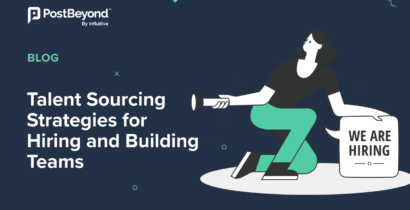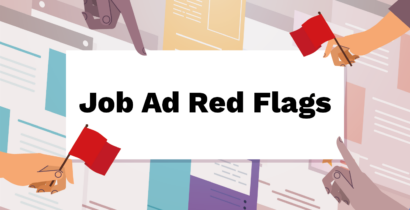In recent years, employer branding has gone from a fringe term to a main focus for both Human Resources and Marketing departments. Today, there are more job openings than candidates available so many companies are trying to figure out how to make their employer brand stand out to land their next best hire.
As brands continue to focus on developing and differentiating their employer brand in the market many are also figuring out its true potential. A strong employer brand helps attract top talent, but it also affects how prospects and customers view your organization as a whole as well.
Here are the top 45 employer branding statistics businesses need to know:
Employer Branding & Human Resources
Companies that take the time and effort to work on their employer brand are 130% more likely to see an increase in overall employee engagement.
39% of companies feel employer branding is a long-lasting trend that requires focused programs.
72.8% of companies are struggling to attract top talent as their most qualified candidates are often already employed and/or not actively looking for opportunities.
86% of Human Resources professionals feel that recruitment strategies are becoming similar to brand marketing strategies.
According to a study by Jobvite, most recruiters feel the best medium for growing an employer brand is social media (47%), followed by company website (21%) and marketing and advertising (12%).
76% of companies choose social media as their preferred way to communicate employer branding messages.
By 2020, companies believe that social media marketing will be the top requested HR skill.
Currently, half of all employee referrals are sourced through social media. This has lead to the vast majority (9/10) of companies using social media in some way to attract, source and engage talent and/or showcase their brand.
While making sure your company reviews are positive, 68% of consumers will only trust reviews if they see both positive and negative reviews.
Half of those surveyed said they would leave an online negative review if they had a bad experience with a company.
Only 57% of organizations say that have an employment branding strategy.
Recruiters who represent a company with a strong employer brand are twice as likely to receive responses from candidates.
Strong employer brands drive 2x the amount of applicants per job compared to those who do not.
80% of talent leaders feel employer branding significantly impacts their ability to hire top tier talent.
Employer Branding & Candidate Experience
If an applicant has a negative experience with your brand, 64% will tell their friends and family.
Another 27% would go further and actively discourage people from engaging with that brand.
When researching a potential company, 14% of candidates stated the most influential branded material was the company’s values, followed by CSR (13.8%) and awards (12.7%). This is especially true amongst Millennials and Gen Z who places a greater weight factor on brand values and company culture.
And this shows, with 88% of Millennials stating that their values aligning to the company culture is important in order for the position to be a good fit.
When searching for a position, the average job seeker will review 18 different resources before applying.
Three-quarters of job candidates spend over an hour researching a company before applying for a role.
Over half of candidates have abandoned their applications after finding negative reviews online. On the other hand, only 45% of employers monitor and address those reviews.
The number one struggle for candidates is not knowing what it’s like to work at a company and what their culture is truly about.
There is a disconnect between brands and job seeker expectations; 80% of job seekers say would not re-apply to a company if they weren’t notified during their original application process. Only 61% of employers said they notified both successful and unsuccessful candidates.
Job seekers recently rated social networks as the most useful resource compared to job boards, ads, employee referrals, recruiting agencies, and recruiting events when looking for a position.
Over half of job applicants are willing to take a smaller paycheck if they can get the opportunity to work for a well-known company with a strong employer brand.
The average job seeker will read six reviews before forming an opinion of a company.
62% of job seekers visit company social media channels to evaluate their employer brand.
79% of job applicants use social media when searching for a job. This increases up to 86% for those in the first 10 years of their career.
56% of top talent rated a company’s reputation as ‘a great place to work’ as the deciding factor when considering if they would apply for a job.
If a company has a bad reputation, 69% of applicants will not take a job offered to them, even if they were unemployed.
Employer Branding & ROI
Improving your employer brand can decrease the cost of hire by 50% and can increase retention by 28%.
When it comes to reviewing the company and discussing work culture, the voice of your employees is 3x more credible than your CEO’s.
According to the Harvard Business Review, a company with 10,000+ employees could spend as much as $7.6 million USD in additional wages to counteract their poor reputation in the marketplace.
Investing money in an employer brand is beneficial for business revenue. Companies with a strong employer brand see, on average, a 43% decrease in cost per hire as it’s easier to attract talent with a well known attractive employer brand.
On average, a large organization spends $129,000 to $335,900 USD on employer branding initiatives.
More than two-thirds (67%) of employers believe retention rates would be higher if candidates had a clearer picture of what to expect about working at the company before taking the job.
84% would consider leaving their current company if they were offered a job at a company with an excellent reputation.
Strong employer branding can increase your stock prices by 36%.
Working towards creating a stronger employer brand has multi-departmental effects and will impact a company’s bottom line. As employer branding strategies continue to grow, social media and leveraging the voices of your employees remains a key strategy for long term success. Learn more about employer branding now!





